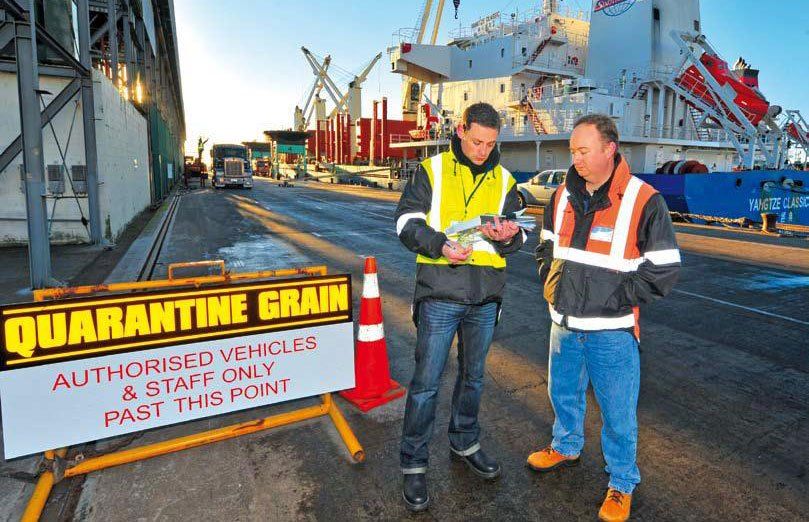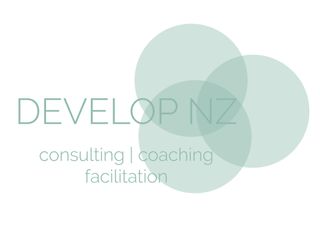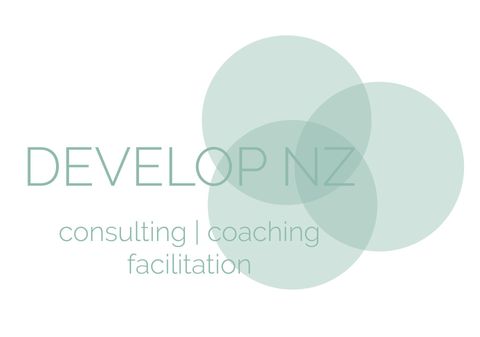How to have impactful Crucial Conversations:
Linzi Ebbage-Thomas • September 22, 2020
10 tips to be more courageous
Tough conversations can be one the hardest yet inevitable parts of a leader’s job.
Impactful crucial conversations can resolve conflict, deepen relationships, build strong and diverse teams, keep ideas and creativity flowing.
Often fear stops us having those necessary difficult conversations – that we know we need to have. Our fear leads to procrastination and we fail ourselves and our team continue to provide substandard performance, miss deadlines, engage in interpersonal conflicts and exhibit toxic behavior. Costs can run deep.
These crucial conversations require a leader to display empathy, expert questioning and listening skills and a dash of courage.
Here are some tips to take your crucial conversations to the next level:
1. Be clear about the issue
Ask yourself two important questions:
"What exactly is the behaviour that is causing the problem?"
"What is the impact that the behaviour is having on you, the team or the organisation?"
Lack of focus on the central issue will derail the conversation and sabotage your intentions.
2. Know your desired outcome
What do you want to accomplish with the conversation – what does success look like?
3. Remain open-minded
Approach crucial conversations with an inquiry mindset, consider your personal biases. Hear first what the other person has to say before reaching closure in your mind.
4. Manage the emotions
Be authentic but manage your emotions. Aim to maintain the others self esteem, treat them with respect and preserve their dignity. Even if you totally disagree with them!
In some cases, you may have to respond to a person's tears and this is often a deal breaker for Leaders. In the video "How To Handle Tears At Work," Anne Kreamer, author of It's Always Personal: Navigating Emotion in the New Workplace, provides several strategies.
5. Be comfortable with silence
There will be moments in the conversation where a silence occurs, don't rush to fill it with words.
A pause also has a calming effect and can help us connect better and may lead to better outcomes.
6. Preserve the relationship
It takes years to build a relationship with a person and can take only minutes to blow it up.
7. Be consistent
Aim for consistency in your leadership approach and trust will build. Nothing erodes a relationship faster than perceived inequality.
8. Choose the right place to have the conversation
Know your people and what environments will work for them and the conversation to be had. And always consider your non-verbal communication – it can change the message significantly.
9. Know how to begin
Some people put off having the conversation because they don't know how to start. Work with someone to prepare how to begin.
Make sure your words and tone of voice signals an inquiry mindset and NOT one of inquisition or punishment right from the get-go..
10. Train other leaders on how to handle the difficult conversation
There are dozens of good books written on this crucial topic, such as Fierce Conversations, by Susan Scott and Crucial Conversations: Tools for talking when the stakes are high, by Kerry Patterson. Conflict is a natural part of human interaction and managing conflict effectively is one of the vital skills of leadership and often the skill in desperate need of development.
Having a courageous conversation is hard. Some believe they are not good at them. Most of us hate it. But at times they need to be had and usually, once you’ve had the conversation, on reflection, you think how much easier it was than you had anticipated.
To be successful you need to consider the mix of what you say and how you say it. As Julian Treasure stated in his TED Talk How to speak so that people want to listen (https://www.ted.com/playlists/211/the_art_of_meaningful_conversa) to be effective in having crucial conversations remember to HAIL:
Honest -
Be clear and straight.
Authentic-
Be yourself. Stand in your own truth.
Integrity-
Be your word. Do what you say and be someone people can trust.
Love -
Wish them well (it’s hard to be judgmental when you do). Tempered with love... honesty is a great thing.
Linzi Ebbage-Thomas
www.careersteps.co.nz
TED Talk: https://www.ted.com/playlists/211/the_art_of_meaningful_conversa
Article: https://www.americanexpress.com/us/small-business/openforum/articles/top-ten-tips-for-handling-the-difficult-conversation/
Books: http://www.amazon.com/Difficult-Conversations-Discuss-What-Matters/dp/0670883395/ref=tmm_hrd_title_0
http://www.amazon.com/Crucial-Conversations-Talking-Stakes-Second/dp/0071771328/ref=sr_1_1?s=books&ie=UTF8&qid=1363808072&sr=1-1&keywords=Crucial+Conversations
Psychometric Tools: http://www.clarionenterprises.com/blog/wp-content/uploads/ConflictStyleReport.pdf

The background Springfree Trampolines are a global company that manufacture recreational trampoline products and accessories. The unique Springfree design was invented by Dr. Keith Vivian Alexander, an associate professor in the Mechanical Engineering Department at the University of Canterbury in Christchurch, New Zealand where their NZ HQ is based. The Christchurch HQ Team has had a number of requirements that have involved Career Steps – deepening mutual understanding and trust over a number of years. What I did for Springfree Initially, some of the Senior Leaders were seeking professional growth. To assist them in their development they appointed Career Steps as Executive Coaches. Meeting regularly, the coachees were challenged to identify any gaps in their development and plans were established to target growth in these areas. Some of these close coaching relationships have evolved into "check-ins" to ensure that the required development is still being gained. There have also been opportunities for me to be involved in the international recruitment of new team members for the Christchurch Team; the additional goal being that existing team members would be equipped to carry out future recruitment campaigns with added rigour and confidence and without the need for external assistance. I have also had the opportunity to facilitate Team Development, with outcomes aimed at ensuring that the Christchurch Team are working at the highest performance levels and living Springfree’s cultural values. The results Enduring relationships with the Executive Team and coaches reflect the success of our work with Springfree. “ Linzi’s coaching and support over the last 18 months has been invaluable and I could not have got through some of my ‘growth’ moments without her support and guidance. Linzi has coached me to reflect on my leadership style, by holding up the mirror to identify how others may see me and the key areas I need to set goals around, for my growth and improvement. ” - SENIOR LEADER, SPRINGFREE NZ

Port Taranaki The background The brief was to provide information to the Human Resource Team at Port Taranaki who were preparing a business case for presentation to the Senior Leadership Team and Board on changes to the existing Performance Appraisal System. The existing system was robust, well designed and had initial success in parts of the organisation. However, without sufficient training and on-going leadership it had fallen by the wayside and was seen as ineffective, with evaluation criteria that could cause anxiety. What I did for Port Taranaki Through in-depth conversations with Human Resources and staff, a phased approach to change was suggested. The underpinning philosophy was to create great conversations that drive a higher level of performance from every employee at Port Taranaki. Ultimately, the existing appraisal system could be returned to. But for 2-3 cycles, it was recommended that the basic skills of great conversations - regular positive and developmental feedback - should be the focus. Through communicating and offering skills development, day-to-day conversations would be enriched. Specific and timely feedback and performance management issues would be nipped in the bud rather than escalating. It was suggested that Leaders were developed to observe Moments of Truth and confidence build to they knew how to act on them.. My consultancy allowed the business case to be written, providing information on: rationale for change; benefits associated with building a successful high performance culture; risks associated with the proposed approach and suggestions on how they could be mitigated. The results The Human Resources Team received a detailed 23-page report with specific phases outlined, including: Suggestions for aligning all HR systems A new approach to writing Position Descriptions How to re-frame the Induction process Recommendations for development planning and measuring through 360 reporting Integrating their 3 values into all systems and phases of the new performance development system A suggested time-frame to roll-out the different phases Overall this project was well received by Human Resources and the participants and the recommendations were implemented throughout the Port.

Cardrona Alpine Resort The background Since its early days as a club ski field, Cardrona Alpine Resort has developed into an internationally recognised brand. Able to recruit well-educated and often globally experienced team members, Cardrona were looking to support their leaders in further developing themselves. In partnership with GENOS International, I determined that Emotional Intelligence (EQ) was an underpinning factor of high performance. Leaders with high EQ are more likely to be successful, and EQ competencies are measurable and able to be developed. The General Manager at Cardrona embraced the direct link that exists between the way people feel and the way people perform at work and this linked closely to Cardrona’s values. What I did for Cardrona Using an Emotional Intelligence Leadership 360 Assessment tool we undertook surveys on each leader in the organisation and measured how they demonstrated EQ competencies in comparison to others. Any competency gaps highlighted by the tool were used as the basis for their Professional Development Plan (based on the 70:20:10 principal). The collaborative approach to writing the Development Plans meant individuals were offered coaching and, as small teams, they supported each other in writing and sharing their goals, challenges and successes. As a larger leadership team, each participant presented their journey and their plans for the coming winter season. Cardrona plans to repeat the process in 12 months time. The results As a result of the evaluation and subsequent development planning there have been a number of participants who have reported significant growth in their leadership style, positive changes to behaviours and an increased ability to connect with their people and get the best out of them. “ I was given an opportunity to work with Linzi after an organizational restructure. I was not in a good space professionally & that was having a serious knock-on effect in other areas of my life. The impact of my coaching relationship was immediate. Opportunities for development & growth were quickly identified & strategies put in place to bring about change. With Linzi’s guidance, I was able to implement new behaviours & reframe my thinking whilst navigating the big workplace shake-up happening around me. The process has been nothing short of transformative, both professionally & personally. Linzi has a coaching style that really delivers, with a vast knowledge base, a theory for every situation & decades of real world experience. A straight shooter, Linzi is quick to hold you accountable & tell you to ‘put your big girl knickers on’ when required! The coaching process is not always easy but my relationship with Linzi is one of complete trust … I’m so grateful for her wisdom, empathy, support & humour. ” - MANAGER, CARDONA ALPINE RESORT

